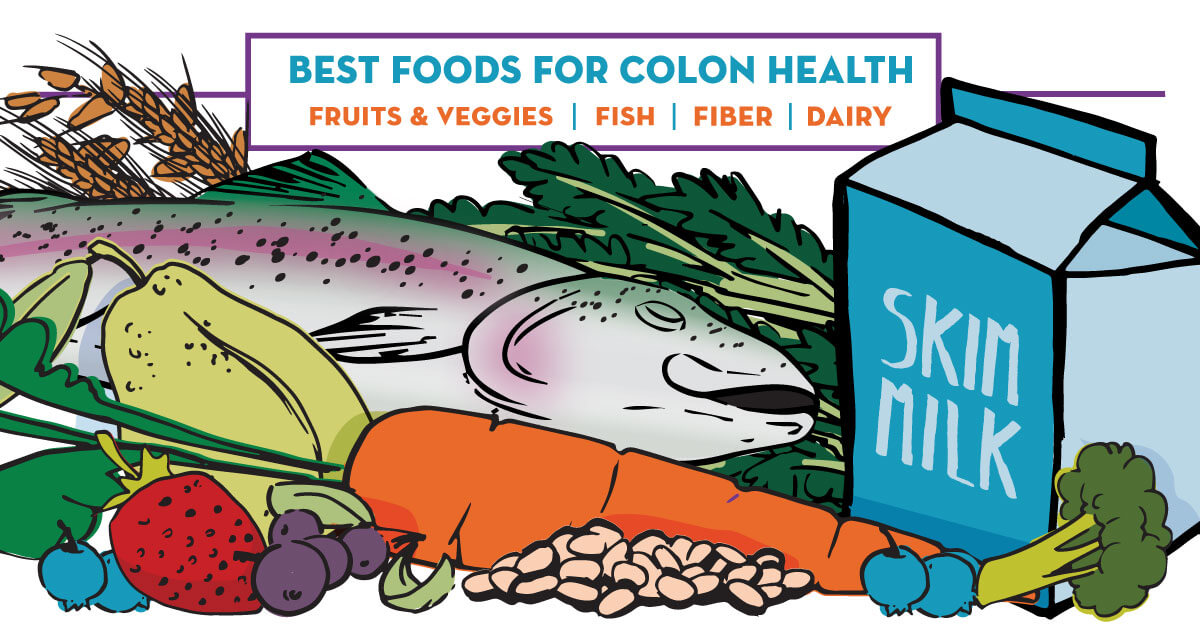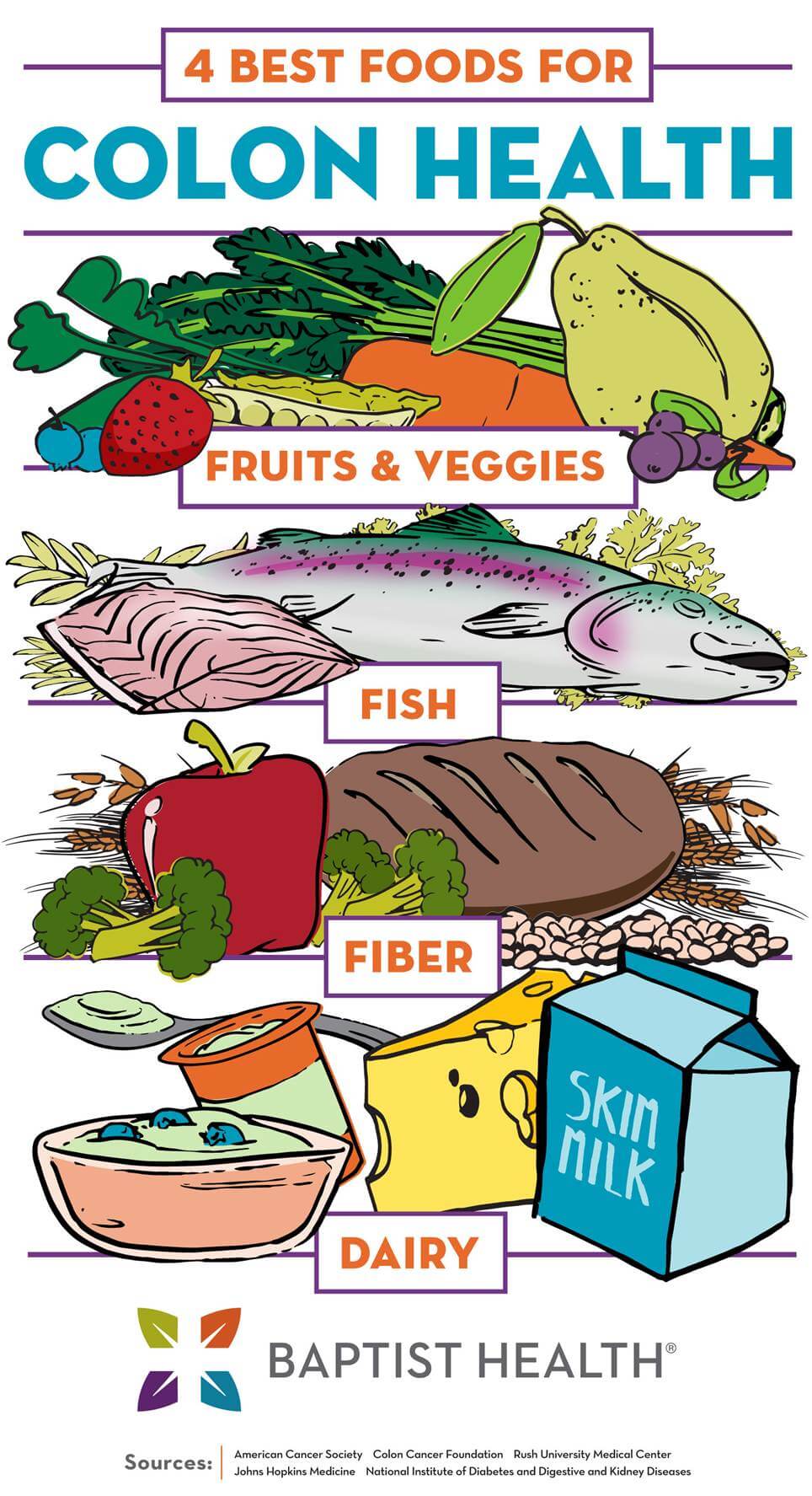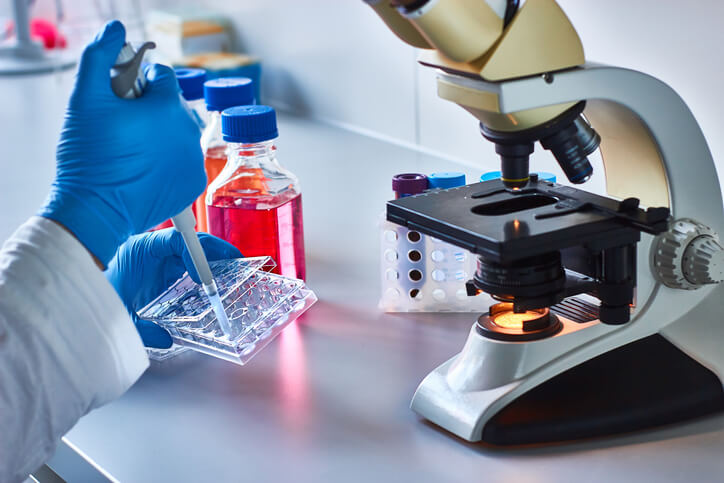Best Foods for Colon Health

Colon cancer is rarely hereditary. In fact, fewer than 10 percent of colon cancer cases are caused by genetics. In large part, lifestyle factors are responsible for diseases of the colon; the American Cancer Society asserts that diet, weight, and exercise are explicitly linked to colorectal cancer. And, according to the Colon Cancer Foundation, 50 to 75% of colorectal cancer can be prevented through lifestyle changes. Follow the tips below for foods to incorporate and foods to avoid for a healthier colon.
Four Great Foods for Colon Health:
Fruits & Veggies
Eat the rainbow! Incorporating a variety of colorful fruits and vegetables into your diet ensures that you get the vitamins, minerals and antioxidants you need for a healthy colon — and an overall healthier self.
Fish
The omega-3 fats found in fish like salmon and mackerel help protect against cancer and other chronic diseases. You can also find these beneficial fats in flaxseed and walnuts.
Dairy
Calcium and vitamin D are thought to lower the occurrence of colon polyps. Foods rich in calcium include milk, cheese, yogurt, and broccoli. You can find vitamin D in eggs and fish like salmon. Sunlight also helps your body make vitamin D.
Fiber
The recommended guideline for fiber intake is 25 to 35 grams per day. The typical American only consumes about 13 grams of fiber daily. Incorporating whole, fiber-rich vegetables, fruits, grains, and legumes can bolster your fiber intake. Be sure to choose grains wisely; whole grains are preferred. These include barley, quinoa, brown rice, and oatmeal.
Foods That Should Be Avoided:
Red & Processed Meat
Eating 100 grams of red meat (about the size of a small hamburger) or 50 grams of processed meats (roughly one hot dog-sized portion) per day increases the risk of colon cancer by 15 to 20%. Experts advise that red meat consumption is limited to no more than two four-ounce servings per week. Processed meats should be avoided entirely or eaten only rarely as a special treat.
Sugar
A diet high in sugar and low in fiber has been found to be associated with ulcerative colitis and Crohn’s disease. Foods high in sugar are also high in calories and can lead to obesity, which is known to be a risk factor for cancer.
Salt & Saturated Fats
General dietary guidelines recommend avoiding excess salt and saturated fats. In addition to promoting an overall healthier diet, cutting out the salt and saturated fats can help prevent and treat colon cancer.
Schedule a Screening:
Up to 95% of colorectal cancers are curable if detected early. A colonoscopy is the best way to prevent colon cancer; the procedure lets doctors look for, remove and test precancerous growths and polyps. The American Cancer Society recommends patients with average risk of colorectal cancer begin regular screenings by age 45.




